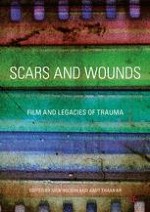2017 | OriginalPaper | Chapter
10. Flesh and Blood in the Globalised Age: Pablo Trapero’s Nacido y criado (Born and Bred) and Carancho (The Vulture)
Activate our intelligent search to find suitable subject content or patents.
Select sections of text to find matching patents with Artificial Intelligence. powered by
Select sections of text to find additional relevant content using AI-assisted search. powered by
